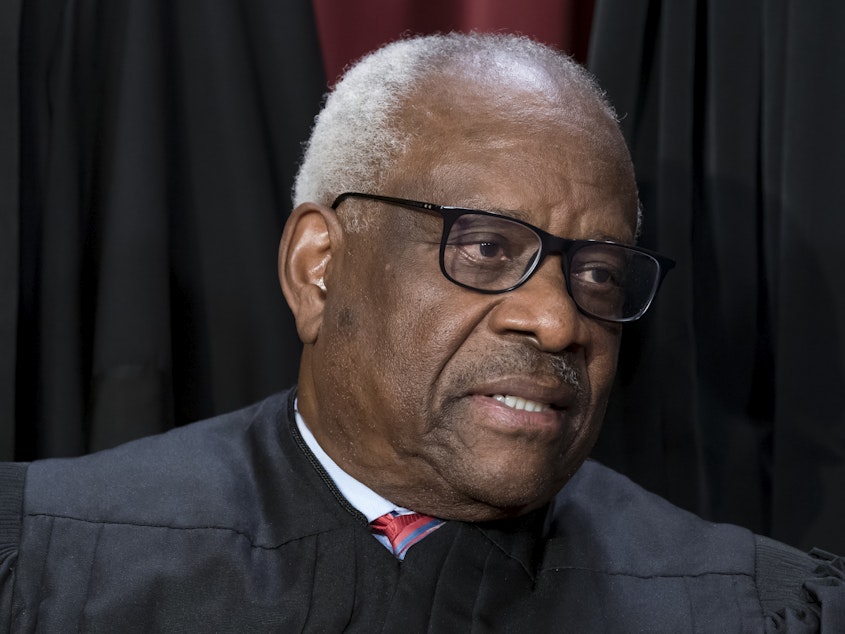Thomas accepted more gifts from billionaire benefactors, new ProPublica report says

Supreme Court Justice Clarence Thomas accepted more vacations and gifts from billionaire benefactors than previously reported, according to a new report by ProPublica.
The conservative justice, who has come under scrutiny for his failure to disclose such gifts, took at least 38 vacations, 26 private jet flights, eight flights by helicopter, a dozen VIP passes to sporting events, as well as stays at luxury resorts in Florida and Jamaica, the nonprofit news site reports. ProPublica notes that Thomas appears to have broken the law by failing to disclose flights, cruises and sports tickets.
The report is the latest revelation about the justice that has brought into the spotlight the Supreme Court justices and the ethics rules they are supposed to follow.
ProPublica previously revealed that Harlan Crow, a Texas billionaire, paid for Thomas' vacations, his mother's house, and a nephew's tuition payments. Separately, The New York Times reported that Thomas received special treatment from members of the Horatio Alger Association, including David Sokol, a former Berkshire Hathaway executive; and H. Wayne Huizenga, the billionaire. ProPublica reported that Paul "Tony" Novelly, the oil baron, is a previously unnamed benefactor of the justice. The total value of the undisclosed trips Thomas has received from these men since 1991, when he was appointed to the Supreme Court, is likely in the millions, the news site said.
Neither Thomas nor Novelly responded to ProPublica's questions for its report. Huizenga died in 2018. In a statement, Sokol said though he hosted the Thomases, they "have never once discussed any pending court matter."
Sponsored
Thomas isn't the only justice to come under such scrutiny. ProPublica reported in June that in 2008 Justice Samuel Alito went on a fishing trip to Alaska with hedge fund billionaire Paul Singer, a Republican donor who has had cases before the Supreme Court. Alito traveled to the remote Alaska site on Singer's private jet, along with Leonard Leo, a longtime leader of the conservative Federalist Society, who helped organize the trip. And the salmon fishing lodge that they all stayed at was owned at the time by another big Republican donor, Robin Arkley II, who footed the bill for Alito's lodging. Alito did not subsequently recuse himself from a case involving Singer's legal interests before the court.
Legal experts have said that the justices should have disclosed free trips like these.
"The statute itself is clear, and the justices can be very harsh on litigants who fail to follow statutory language," Amanda Frost, a University of Virginia professor, told NPR in June. "So I think they should hold themselves to that same standard."
In April, Thomas issued a statement declaring that when he first came on the court in 1991, he was advised by his colleagues and others that he didn't have to disclose hospitality from personal friends. That understanding has been corrected, he said, and he would in the future disclose such personal travel and entertainment paid for by others. He did not, however, commit to amending his prior disclosure forms.
Polls show that Americans of all political stripes are increasingly troubled by the lack of a code of ethics for the high court. Chief Justice John Roberts has more than once said the court is working on an ethics code for itself, but so far one has failed to materialize. [Copyright 2023 NPR]



